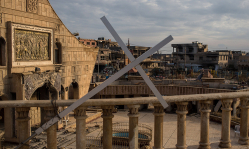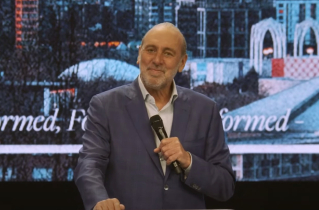![[Interview] Shifting paradigms: the Great Commission as a promise God will fulfill, not a task we need to achieve](/media/cache/thumbnail/0/03/359sp_625w_410h_1x_1y.jpg)
[Interview] Shifting paradigms: the Great Commission as a promise God will fulfill, not a task we need to achieve
But when reading Matthew 28, where Jesus said in the gospel of this kingdom will be preached in all nations, to all the earth, I see that as a promise that God will fulfill, not a task that we need to achieve. But many times, we have focused on it as if it were merely a task. The difference there is if we focus on it as a task - this is that whole “industrialized” perspective of missions - then we are required to use our own agency to fulfill it. And as a result, if anything gets in the way or i

![[Interview] “Harmony isn’t the absence of tension,” says global mission leader commenting on major trends today](/media/cache/thumbnail/0/03/307sp_250w_149h_1x_1y.jpg)

